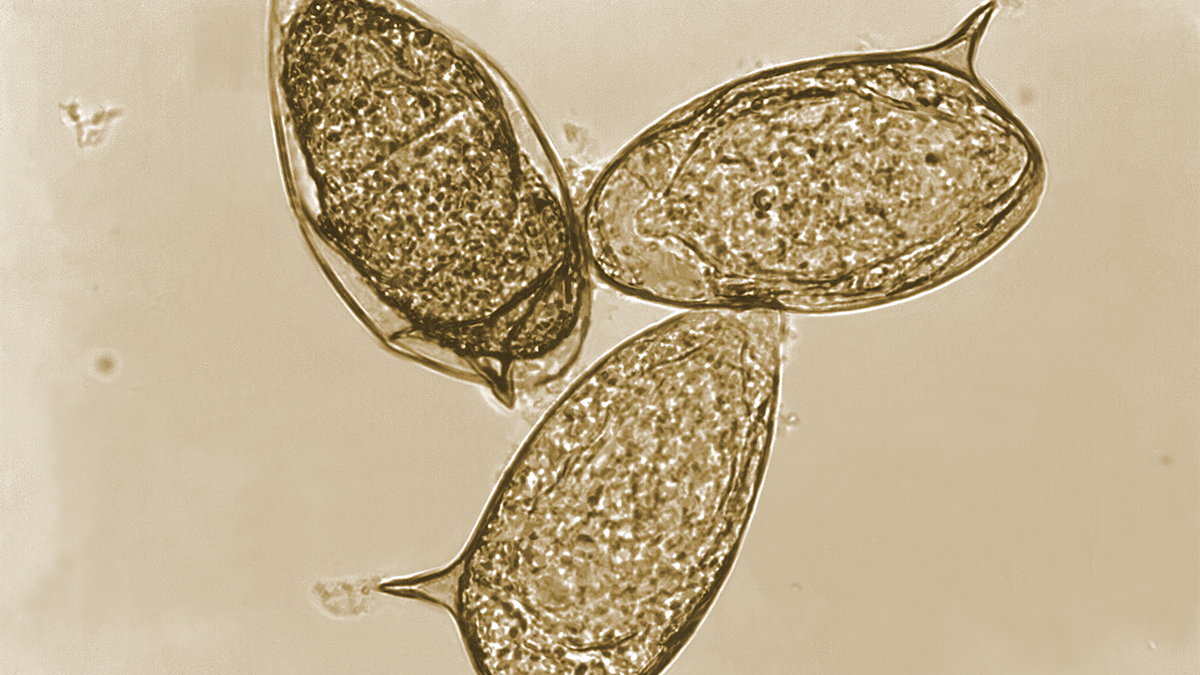Key points
- The most common early signs of schistosomiasis are rash or itchy skin.
- Symptoms of schistosomiasis are your body's reaction to the eggs produced by adult worms.
- Without treatment, schistosomiasis symptoms can last for years.

Symptoms
Symptoms of schistosomiasis occur when your body reacts to the eggs produced by the adult worms.
You may not experience symptoms when you are first infected. The most common early symptoms of schistosomiasis are a rash or itchy skin. These occur within days after becoming infected.
Within 1 – 2 months, you may experience:
- Fever
- Chills
- Cough
- Muscle aches
Inflammation or scarring occurs when eggs shed by the adult worms become stuck in the intestine, liver, or bladder.
Chronic infections in children can cause:
- Anemia (lack of red blood cells)
- Malnutrition (lack of nutrients)
- Learning difficulties
Chronic (long term) schistosomiasis can develop if you do not get treatment. Symptoms include:
- Abdominal (stomach) pain
- Larger liver
- Blood in the stool (poop) or urine (pee)
- Problems urinating
- Damage to the spleen, lungs, intestines, and bladder
Chronic infection can also cause increased risk of liver fibrosis (scarring of the liver), bladder fibrosis (scarring of the bladder), bladder cancer, or kidney damage.
In rare cases, eggs can enter the brain or spinal cord. These eggs can cause seizures, paralysis, or spinal cord inflammation.
